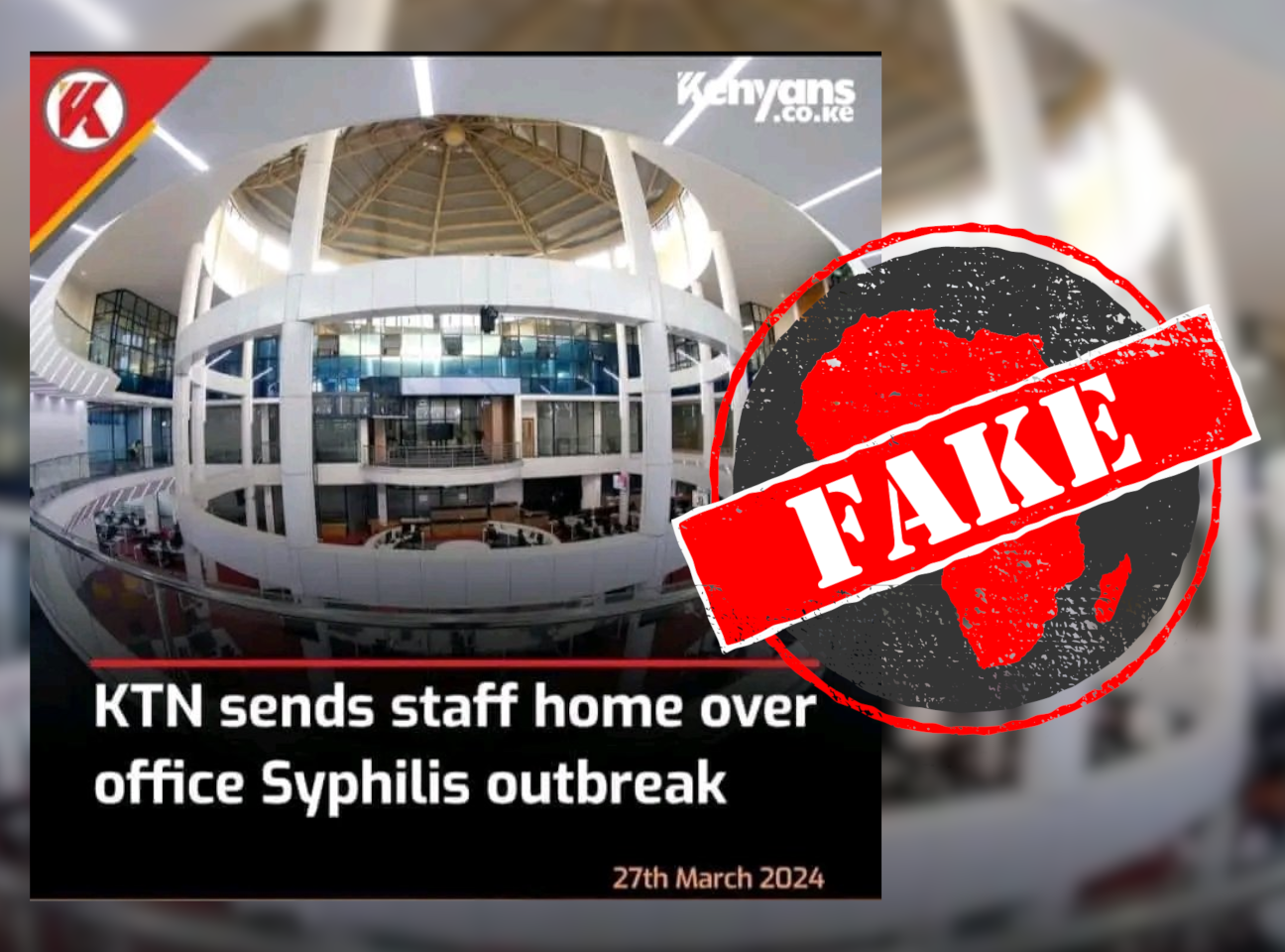IN SHORT: Social media users have posted graphics attributed to news agencies Kenyans.co.ke and Taifa Leo claiming there was a syphilis outbreak at a television station. But the graphics are fake and should be ignored.
Several posts on Facebook, X (formerly Twitter), Instagram and TikTok claim that a Kenyan television station has sent staff home over a “syphilis outbreak”.
The posts mention Kenya Television Network (KTN), a mainstream TV station owned by the Standard Group Plc.
Syphilis is a bacterial infection transmitted through sexual contact, pregnancy and blood transfusions.
Some versions of the claim included a graphic attributed to the news site Kenyans.co.ke. Others show a front page headline attributed to Taifa Leo, a Kiswahili newspaper, supposedly published on 27 March 2024.
One post was shared in a public Facebook group with more than 34,000 members. One video showing the graphic and the newspaper front page has accumulated more than 278,500 views on TikTok.
The same claim can also be found here, here, here, here, here, here, here, here, here, here, here, here and here.
But have Kenyans.co.ke and Taifa Leo reported an outbreak of syphilis at KTN? We checked.

Ignore false graphics
Kenyans.co.ke posted the graphic with the word “fake” stamped on it.
“This post did not emanate from our media house. We, therefore, flag it as FAKE. For official communication from http://Kenyans.co.ke, always visit the official website and verified social media pages,” the media house stated on its X account.
We found Taifa Leo’s actual front page published on 27 March. The fake front page is almost identical to the original but replaces a story about criminals using helicopters to steal cattle with the false story about a syphilis outbreak at KTN.
The newspaper also said the image was “fake”.
“Warning: Taifa Leo has nothing to do with the fake headline circulating online. Read accurate news at https://taifaleo.nation.co.ke/,” read the notice published in Kiswahili.
The Standard Group also issued a statement about what it called “online attacks”.
“These are malicious attacks, whose intention is to derail our unflinching commitment to the mission of journalism and the pursuit of the public interest. We remain unbowed in our fight against agents of misinformation, disinformation and fake news,” said Joe Munene, the acting group chief executive.
Republish our content for free
For publishers: what to do if your post is rated false
A fact-checker has rated your Facebook or Instagram post as “false”, “altered”, “partly false” or “missing context”. This could have serious consequences. What do you do?
Click on our guide for the steps you should follow.
Publishers guideAfrica Check teams up with Facebook
Africa Check is a partner in Meta's third-party fact-checking programme to help stop the spread of false information on social media.
The content we rate as “false” will be downgraded on Facebook and Instagram. This means fewer people will see it.
You can also help identify false information on Facebook. This guide explains how.


Add new comment